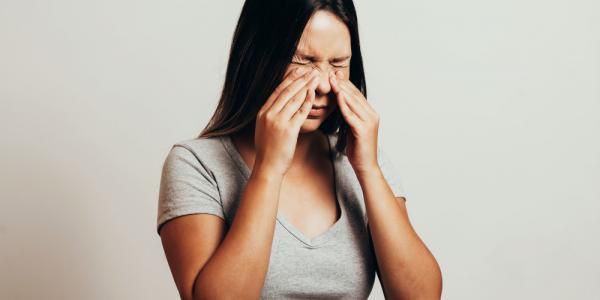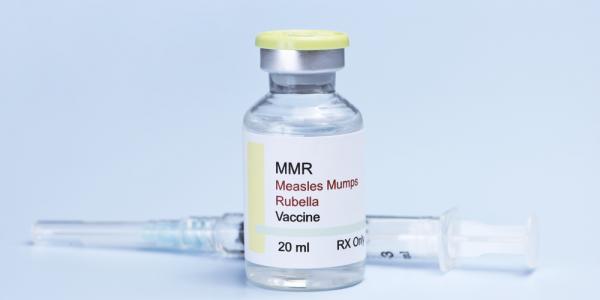Human Papillomavirus and Cancer
.png)
Regardless of your personal stance on vaccines, many people wonder why some vaccines are recommended or used. This article reviews Human Papillomavirus, the diseases it can cause, and reasoning behind considering this vaccine.
In my career as a Physician Assistant, I cared for many patients, male and female affected by different forms of this disease and followed them through the sometimes painful treatment course. Let’s take a closer look at HPV.
What is HPV?
HPV is short for human papillomavirus. HPVs are a large group of related viruses.
HPV Facts:
- HPV is the most common sexually transmitted infection in the US.
- There are nearly 200 different strains of HPV. As viral types are discovered they are identified by a number. Most forms of HPV are harmless and do not cause any health problems however, there are few HPV types that can cause genital warts or cancer.
- There are nine known types of HPV that are responsible for approximately 70 percent of all cervical, anal, penile, and cancers of the mouth and throat. There are two HPV types that cause 90% of all genital warts.
- You can have HPV without ever knowing it because the virus often produces no signs or symptoms that you will notice. Most people's immune system will clear the HPV within two years.
- HPV infections are commonly shared through intimate contact. This means that the partner of someone who tests positive for HPV likely has HPV already, even though they may have no signs or symptoms.
- Condoms may lower your chances of contracting or passing the virus to your sexual partners if used all the time and the right way. However, HPV can infect areas that are not covered by a condom- so condoms may not fully protect against HPV.
- Because HPV is so common, the CDC says that more than 80% of Americans will have an HPV infection in their lifetimes. The highest risk period occurs late in the teens and twenties when sexual activity is the highest and the number of partners is likely to be greatest.
- Only females can be tested for the HPV virus. If you test positive for HPV, there is no sure way to know when you were infected with HPV, or who gave it to you. A person can have HPV for many years before it is detected or it develops into something serious like a cancer.
What increases the risk for infection with HPV?
- Number of sexual partners- The greater your number of sexual partners, the more likely you are to contract a genital HPV infection.
- Engaging in oral sex.The risk increases with greater numbers of sexual partners.
- Having sex including a partner who has had multiple sex partners increases your risk.
- Weakened Immune Systems- People who have weakened immune systems are at greater risk of HPV infections. Immune systems can be weakened by HIV/AIDS or by immune system-suppressing drugs used after organ transplants.
Testing for HPV
The HPV tests on the market are only approved for identifying cervical HPV infection in women. They can be used in addition to a Pap test to look for HPV infection and increased risk of cervical cancer.
- There’s no approved HPV test to find HPV on other areas of the body.
- There’s no test for men or women to check one’s overall “HPV status.”
Is there a cure for HPV?
No. There is no cure for the HPV if the immune system is not able to clear the virus. There are vaccines available to PREVENT infection with the HPV types that can cause health problems.
HPV vaccination is preventing cancer-causing infections.
Since HPV vaccination was introduced over 10 years ago,. Infections with HPV types that cause most HPV cancers and genital warts have dropped 71 percent among teen girls.
HPV Vaccines
- Only one vaccine is available in the United States, Gardasil 9, which protects against the 9 types of HPV that are known to cause cancers and significant health problems.
- The National Advisory Committee on Immunization Practices, ACIP, recommends routine HPV vaccination for girls and boys ages 9 years old to 12 years old, as well as individuals ages 13 to 45 if they haven’t received the vaccine already. These vaccines are most effective if given to children before they become sexually active.
- These recommendations are for all genders and sexual orientation preferences.
- The value of vaccination at a later stage of life might be higher in those who have had a limited number of sexual partners in their lifetime. The fewer number of lifetime sexual partners the greater the likely benefit of the vaccine.
- The vaccine will protect against 9 different types of high risk HPV strains.the dosing has been reduced to just 2 vaccines, if the vaccine is started before the 15th birthday. If the vaccine is started after age 15, three doses of vaccine are needed.
As with all medical decisions try to be fully informed regarding vaccinations. Take the time to learn the “why” behind the recommendations for the HPV immunization.Then consider the possible health consequences both with and without the vaccine. It may make the decision a bit easier.
For more information on HPV vaccine, visit:
https://www.cdc.gov/hpv/index.html
https://oralcancerfoundation.org/understanding/hpv/hpv-oral-cancer-facts/
https://www.cancer.gov/about-cancer/causes-prevention/risk/infectious-agents/hpv-fact-sheet
Related Articles

Sinuses and Michigan
If you live in Michigan long enough, you will most likely become very familiar with “sinus infections”. The two seem to go “mitten in mitten.”



Belly Breathing for Better Health
Practice Belly breathing to help treat GastroEsophageal Reflux Disease (GERD).





